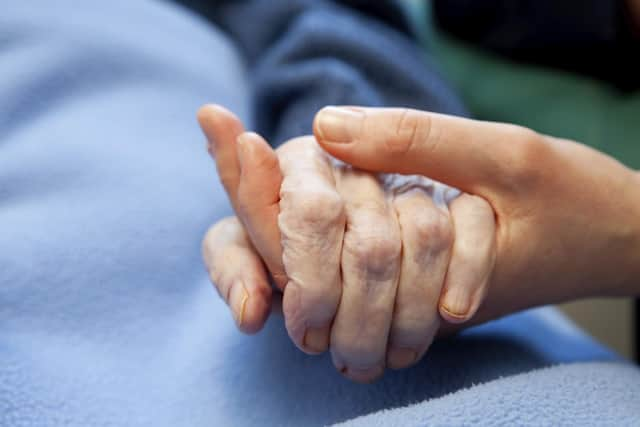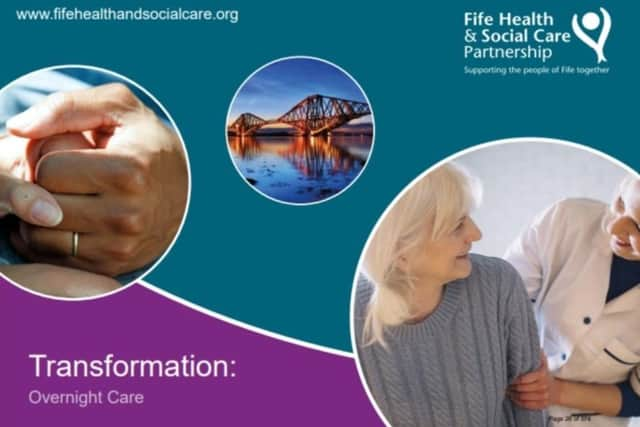Overnight care shake-up in Fife could lead to remote help and £7m in savings
and live on Freeview channel 276
The plan, tentatively approved by Fife’s Health and Social Care Partnership (HSCP) could save £7m, but would mean a huge shake-up in how the service was provided. Overnight care staff located in hubs - which will be “no more than 15 minutes away” from the patient - will be on call to remotely address the problem or attend in person at their home.
The organisation said the model allow people to “remain safe, but also allow them more independence and dignity, whilst also reducing the cost of providing the service to ensure best value and continued sustainability in the long term,”
Advertisement
Hide AdAdvertisement
Hide AdAt present, the service is 100% in person, providing approximately 1.4 million hours of overnight care each year. However, the HSCP ultimately thinks it could be using its time and resources more efficiently and effectively.


Over the next three years, the partnership wants to use a “technology enabled” alarm system to give patients more privacy and independence as well as save the service some money.
“Depending on people’s assessed needs, the current model means we may not always be best utilising the skills of our workforce,” a report from Rona Laskowski, HSCP’s head of service, said. “In Fife as well as in Scotland, we face ongoing issues around recruitment and therefore a change in model will enable the staff involved to be deployed more effectively where they are most needed.”
She continued: “An ever-increasing drive to provide care at home where possible, as well as the continuing change in population and increasing service demand means the current model of overnight care will very soon become outdated and unsustainable.”
Advertisement
Hide AdAdvertisement
Hide AdThe transformation could save the HSCP up to £7 million per year. It’s also an opportunity to “modernise” the service and provide a better experience for patients, according to Ms Laskowski.


“There are a number of people receiving overnight care, many of whom may currently be in receipt of overly restrictive, intrusive services in the shape of in-person overnight care, and have the potential to benefit from technology enabled care with as required in person attendance,” a HSCP report said.
“This [transformation model] supports least restrictive practice and promotes the dignity and independence of the person. This in turn enables our triple aim of improving experience of care, supporting the needs of the population and demonstrating best value of available resources.”
When the new overnight care model is fully rolled out, patients will be able to trigger a sensor or alarm in their property to “immediately raise an alert” at a centralised hub.
Advertisement
Hide AdAdvertisement
Hide AdOvernight care staff located in those hubs - which will be “no more than 15 minutes away” from the patient - will be on call to remotely address the problem or attend in person to the property.
“[This model] provides the opportunity to look at how overnight care is delivered in Fife, to provide not only a model that allows service users to remain safe, but also allow them more independence and dignity, whilst also reducing the cost of providing the Service to ensure best value and continued sustainability in the long term,” the report continued.
Ms Laskowski emphasised that 100% in person overnight care will remain available for anyone who needs it. Each patient will still be assessed to determine what patients need from the service. Many HSCP members praised the transformation for both providing a better service and for saving money at a time when finances are under pressure.
The new model has been approved by the organisation in principle. The partnership has essentially given the senior leadership team permission to create a detailed operational model with full financial details. The next stage will be looking at those models and details and providing the plans with a further green light.